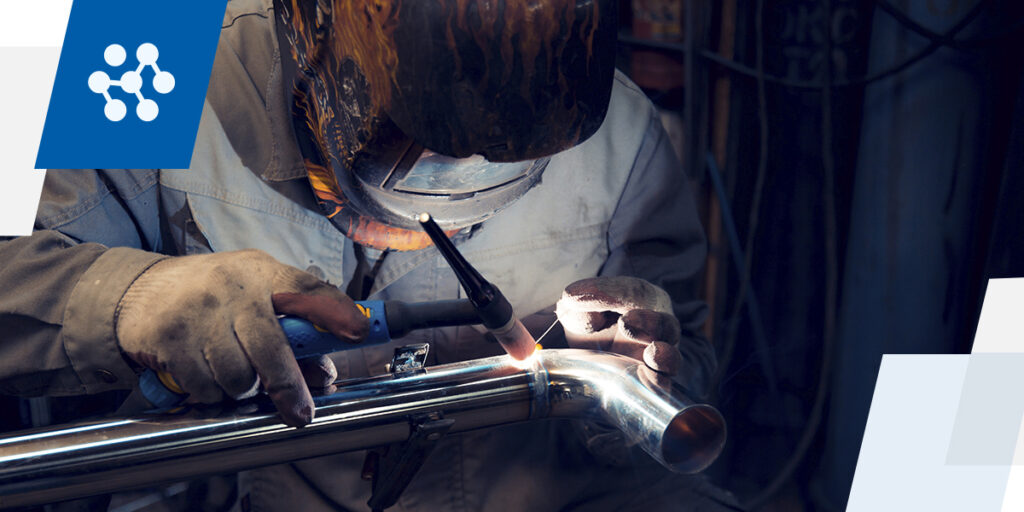

TIG welding is an arc welding process that uses electricity, a non-consumable tungsten electrode and inert or noble gases to produce the weld. There are six inert gases, and only two are cost-effective and accessible enough to use for welding.
One of these gases is argon. It is the third most abundant gas in Earth’s atmosphere and a colorless, odorless, tasteless, non-corrosive, non-flammable and non-toxic gas. Most importantly, because argon is inert and has a low chemical reactivity, it is an ideal shielding gas for arc welding TIG welding.
As a shielding gas, argon pushes away other gasses to protect the weld pool from oxidation and nitrogen absorption without interfering with the welding process. Oxygen and nitrogen can cause defects in the weld if they contaminate the electrode, arc or metals.
Argon is also the premier choice for TIG welding for several other reasons:
Different types of welding processes use different types of gases. Sometimes, you may use a mix of gases depending on the process and what the weld needs. For example, in MIG welding, it’s preferable to use a mix of argon and carbon dioxide. In MIG welding, the shielding gas also affects thermal conduction and arc quality, both impacting the weld. Using pure argon would reduce the arc voltage and power.
Comparatively, in TIG welding, pure argon is the way to go. Argon is compatible with a variety of metals mild steel, stainless steel, aluminum, copper and nickel — this makes pure argon a versatile gas in TIG welding.
Argon welding is a precise process that requires advanced techniques and patience, as it takes longer than MIG welding. Following these tips can help you achieve a fine level of control and a quality weld:

Safety is of utmost importance in welding, regardless of which methods or gases you are using — and TIG welding with argon is no exception. From wearing welding safety gear to working in a clean environment, it is vital to follow safety guidelines when welding:
These frequently asked questions and answers provide a few more insights into using argon for welding:
This depends largely on the size of the cylinder you get, the flow rate, and the type and quantity of welding you are doing. A container may last anywhere from a few hours to a few weeks.
Yes. Argon is one of the very few inert gases appropriate for TIG welding, and of those gases, it is by far the most accessible and affordable.
There are some disadvantages to using argon. It is expensive, a heavy gas that makes it hard to work in tight spaces, and a gas that can be difficult to work with if you have not mastered the proper techniques. In spite of these challenges, it is the best choice for TIG welding.

At Meritus Gas Partners, we work with reliable distributors in the industry to provide quality equipment and services that optimize your operations. Our partner businesses provide premium solutions, including welding gas mixes.
You can rely on our partners near you for efficient and professional services and supplies for all your gas welding supplies. Feel free to visit any of our branches or contact us today to learn more about the advantages of partnering with Meritus Gas Partners for reliable argon supplies.